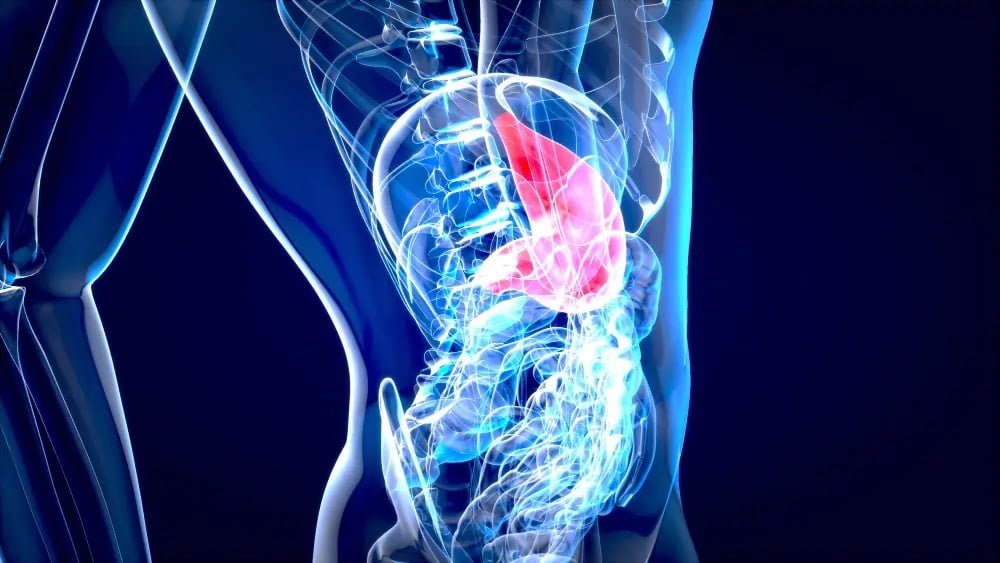
Introduction
Do you have a sweet tooth for chocolate, or are you a coffee enthusiast because of caffeine addiction, or perhaps you love your wine? Then, perhaps, you are thinking of how those threats affect your health. You might be surprised that chocolate, coffee, and wine are not only a pleasure to enjoy but can also be healthy, assuming you consume them in moderation and choose the right ones. In this article, we shall explore some of the amazing benefits of these three foods and how they can prevent diseases, improve your mood, and enhance your performance.
Chocolate: A Sweet Source of Antioxidants
Chocolate, in particular dark chocolate, is rich in antioxidants. An antioxidant is a substance that can protect your cells from damage and inflammation caused by free radicals. Free radicals are unstable molecules that may harm your DNA, proteins, and membranes, thus causing aging and diseases. The presence of antioxidants in your body may neutralize free radicals and prevent or reduce their harmful effects.
One of the major antioxidants found in chocolate is flavonoids. Flavonoids are plant compounds that contain several health benefits. These include improving blood flow, lowering blood pressure, and reducing the risk of heart disease and stroke. Moreover, flavonoids can penetrate the blood-brain barrier; therefore, they can reach the brain and influence its function. Other research has also indicated that flavonoids help improve your brain function and mood by improving blood circulation to the brain, stimulating new neurons to stimulate, and increasing neuronal communication.
The second antioxidant that occurs naturally in chocolate is polyphenols. Like all other plant constituents, it has numerous functions for the human body. In addition to modulating enzyme activity, hormone activity, and gene expression, it can even change many metabolic processes. The others include controlling inflammation, diabetogenesis, and oncogenesis through the regulation of the immune system, glucose metabolism, and cell cycle progression.
Of course, all chocolates are not equal. In order to benefit from the benefits of dark chocolates, one needs to buy chocolate that contains at least 70% cocoa and only consume one or two pieces a day. Chocolate’s ingredient in abundance is cocoa. This component contains the highest concentrations of antioxidants. The richer it is in the percentage content of cocoa, the more antioxidants within. Avoid chocolate with added sugar, milk, or artificial ingredients as they tend to cancel out the health benefits of chocolate and raise calorie and fat intake.
Coffee: A Stimulating Drink for Your Nerves
Coffee is the most widely consumed beverage on the globe and with good cause. Coffee is a stimulant that includes caffeine-a natural stimulant that has an impact on your nervous system, boosting your alertness, attention, and performance. Caffeine can further boost your mood, motivation, and memory by enhancing the amount of neurotransmitters, like dopamine, serotonin, and acetylcholine in your brain. Neurotransmitters are chemical messengers that can manage your emotions, thoughts, and behaviors.
On top of that, coffee harbors antioxidants, among others, which inhibit the occurrences and impacts of type 2 diabetes, Parkinson’s disease, Alzheimer’s, and particular cases of cancer. For example, chlorogenic acids are those polyphenolic compounds known for reduced uptake of glucose absorption in the intestine thereby enhancing sensitivities of an insulin that regulates blood sugars. Coffee also contains cafestol and kahweol, which are diterpenes that can modulate the activity of enzymes involved in detoxification and inflammation, and protect the cells from oxidative stress.
But there are also some negative effects, such as insomnia, anxiety, or digestive problems, if you drink too much or too late in the day. Caffeine also affects the quality and amount of your sleep and deranges your circadian rhythm, the natural cycle of sleep and wakefulness. It raises your heart rate, increases your blood pressure, elevates your stress hormone levels, and even causes nervousness jitteriness, or irritability. Moreover, caffeine could stimulate gastric acid production as well, and it also leads to heartburn and acid reflux or stomach ulcers.
Enjoy your coffee without its side effects by limiting it to three or four cups a day, and avoiding it after 3 pm or at least six hours before bedtime. Avoid sugar, cream, or syrups in your coffee because they add calories and fat, increasing your chances of obesity, diabetes, and cardiovascular diseases. Choose instead to have black coffee, low-fat milk, almond milk, or cinnamon; the above-mentioned additions will definitely flavor and add to your coffee’s health benefits.
Wine: A Relaxing Beverage for Your Heart
Wine, especially red wine, is another source of antioxidants, such as resveratrol, which can protect your blood vessels, prevent blood clots, and lower your cholesterol. Resveratrol is a polyphenol that can activate a protein called sirtuin, which can regulate the expression of genes involved in aging and longevity. Resveratrol may also influence nitric oxide activity, a molecule that can cause the dilation of the blood vessels, hence the improvement of blood flow and blood pressure.
Wine may help to relax you, alleviate the tension, and better savor your food. Wine will increase the concentration of endorphins. They are natural opioids and will stimulate pleasure and help alleviate the pain. Wine can also enrich the taste and the aroma of your food, stimulate your appetite, and enhance your digestion. Wine can also increase the absorption of certain nutrients from your food, such as iron, and prevent some harmful bacteria from growing inside you, including Helicobacter pylori which can cause stomach infections and ulcers.
However, wine can also have negative effects, such as increasing your blood pressure, liver damage, and addiction, if you drink too much or too often. Alcohol can raise your blood pressure, by constricting the blood vessels and increasing the fluid retention and the calcium levels in your body. Alcohol may damage your liver by causing inflammation, fatty deposits, and scarring and damaging the function of your liver to filter toxins and waste products from your blood. Alcohol is also addictive; alcohol affects the balance of neurotransmitters in your brain, causing physical and psychological dependence.
For all the advantages of wine with little or no risk, it is prudent to limit consumption to one or two glasses a day and drink it with food rather than on an empty stomach. Finally, drink dry wines over sweet wines, as the former has less sugar and calories, but more antioxidants and polyphenols. Dry wines are those that contain less than 4 grams of sugar per liter, whereas sweet wines contain more than 45 grams of sugar per liter. Some examples of dry wines are Pinot Noir, Cabernet Sauvignon, and Merlot. Some of the examples of sweet wines are Moscato, Port, and Ice Wine.
What are the surprising health benefits of chocolate?
- Rich in Antioxidants: Dark chocolate contains antioxidants that improve blood circulation, reduce high blood pressure, and lower the risk of clotting. These antioxidants contribute to cardiovascular health and stroke prevention.
- Rich in Flavonoids and Flavonols: Flavonoids and flavonols in chocolate help improve blood health, reduce inflammation in cells, and prevent oxidative stress. Epicatechin, a flavonol, may even help fight diabetes and improve brain functions.
- Phenylethylamine, or PEA: A “love molecule,” it evokes a euphoric, pleasurable feeling. Occurring in very small quantities in chocolate, some scientists have speculated that it could uplift mood.
- Anti-Depressant Properties: Cocoa polyphenols in chocolate improve positive mood states, increase calmness, and boost serotonin levels. Women especially benefit during PMS and menstruation from this mood-enhancing effect.
- Muscle Growth: High-cocoa chocolate ingestion may promote capillary growth within the heart and skeletal muscles.
Conclusion
Chocolate, coffee, and wine are three foods that can help you feel happy and healthy, given that you use them appropriately and in the right measures. Chocolate can offer you antioxidants, flavonoids, and polyphenols which protect your cells from damage or inflammation and improve blood flow and blood pressure along with cognitive function. Coffee provides you with caffeine, antioxidants, and other compounds, which may stimulate your nervous system and enhance alertness, performance, and mood. Wine may provide antioxidants such as resveratrol, protecting blood vessels against clots, reducing cholesterol levels, making you relaxed, reducing stress, and making you appreciate food much better. So go ahead and treat yourself to these scrumptious delights, and enjoy the surprising health benefits they offer.
FAQs
Q: What is the difference between dark chocolate and milk chocolate?
A: Dark chocolate contains more cocoa and less sugar and milk than milk chocolate. Cocoa is the main ingredient in chocolate that provides antioxidants, flavonoids, and polyphenols. Therefore, dark chocolate has more health benefits than milk chocolate.
Q: How much caffeine is in a cup of coffee?
A: The amount of caffeine in a cup of coffee depends on several factors, such as the type of coffee beans, the brewing method, and the serving size. However, on average, a cup of brewed coffee contains about 95 milligrams of caffeine, while a cup of instant coffee contains about 65 milligrams of caffeine.
Q: What is the difference between dry wine and sweet wine?
A: Dry wine and sweet wine differ in the amount of sugar and calories they contain. Dry wine has less than 4 grams of sugar per liter, while sweet wine has more than 45 grams of sugar per liter. Dry wine also has fewer calories than sweet wine, as sugar contributes to the calorie content of wine.
Q: How can I consume chocolate, coffee, and wine in moderation?
A: Moderation is the key to enjoying the health benefits of chocolate, coffee, and wine, without the negative effects. To consume these foods in moderation, you can follow these general guidelines:
- For chocolate, limit your intake to one or two squares of dark chocolate (at least 70% cocoa) per day, and avoid chocolate with added sugar, milk, or artificial ingredients.
- For coffee, limit your intake to three or four cups of black coffee (or with low-fat milk, almond milk, or cinnamon) per day, and avoid drinking coffee after 3 pm, or at least six hours before your bedtime. Also, avoid adding sugar, cream, or syrups to your coffee, as they can increase your calorie and fat intake.
- For wine, limit your intake to one or two glasses of dry wine (such as Pinot Noir, Cabernet Sauvignon, or Merlot) per day, and drink wine with food, rather than on an empty stomach. Also, avoid sweet wines (such as Moscato, Port, or Ice Wine), as they have more sugar and calories, and fewer antioxidants and polyphenols.
Q: What are some other foods that have similar health benefits as chocolate, coffee, and wine?
A: Some other foods that have similar health benefits as chocolate, coffee, and wine are:
- Tea, especially green tea, contains antioxidants, flavonoids, and caffeine, and can lower your risk of diabetes, cardiovascular diseases, and some cancers.
- Berries, such as blueberries, raspberries, and strawberries, contain antioxidants, flavonoids, and polyphenols, and can improve your blood flow, blood pressure, and brain function.
- Nuts, such as almonds, walnuts, and pistachios, contain antioxidants, polyphenols, and healthy fats, and can lower your cholesterol, blood pressure, and inflammation.






 Afrikaans
Afrikaans Albanian
Albanian Amharic
Amharic Arabic
Arabic Armenian
Armenian Azerbaijani
Azerbaijani Basque
Basque Belarusian
Belarusian Bengali
Bengali Bosnian
Bosnian Bulgarian
Bulgarian Catalan
Catalan Cebuano
Cebuano Chichewa
Chichewa Chinese (Simplified)
Chinese (Simplified) Chinese (Traditional)
Chinese (Traditional) Corsican
Corsican Croatian
Croatian Czech
Czech Danish
Danish Dutch
Dutch English
English Esperanto
Esperanto Estonian
Estonian Filipino
Filipino Finnish
Finnish French
French Frisian
Frisian Galician
Galician Georgian
Georgian German
German Greek
Greek Gujarati
Gujarati Haitian Creole
Haitian Creole Hausa
Hausa Hawaiian
Hawaiian Hebrew
Hebrew Hindi
Hindi Hmong
Hmong Hungarian
Hungarian Icelandic
Icelandic Igbo
Igbo Indonesian
Indonesian Irish
Irish Italian
Italian Japanese
Japanese Javanese
Javanese Kannada
Kannada Kazakh
Kazakh Khmer
Khmer Korean
Korean Kurdish (Kurmanji)
Kurdish (Kurmanji) Kyrgyz
Kyrgyz Lao
Lao Latin
Latin Latvian
Latvian Lithuanian
Lithuanian Luxembourgish
Luxembourgish Macedonian
Macedonian Malagasy
Malagasy Malay
Malay Malayalam
Malayalam Maltese
Maltese Maori
Maori Marathi
Marathi Mongolian
Mongolian Myanmar (Burmese)
Myanmar (Burmese) Nepali
Nepali Norwegian
Norwegian Pashto
Pashto Persian
Persian Polish
Polish Portuguese
Portuguese Punjabi
Punjabi Romanian
Romanian Russian
Russian Samoan
Samoan Scottish Gaelic
Scottish Gaelic Serbian
Serbian Sesotho
Sesotho Shona
Shona Sindhi
Sindhi Sinhala
Sinhala Slovak
Slovak Slovenian
Slovenian Somali
Somali Spanish
Spanish Sundanese
Sundanese Swahili
Swahili Swedish
Swedish Tajik
Tajik Tamil
Tamil Telugu
Telugu Thai
Thai Turkish
Turkish Ukrainian
Ukrainian Urdu
Urdu Uzbek
Uzbek Vietnamese
Vietnamese Welsh
Welsh Xhosa
Xhosa Yiddish
Yiddish Yoruba
Yoruba Zulu
Zulu